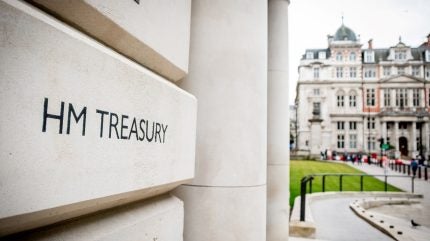
UK Defence will continue to tread water following the Labour government’s first Budget which it unveiled to the public on 30 October 2024.
While the Treasury announced it has allocated £2.9bn of additional funding – growing the defence budget by 2.3% – the Ministry of Defence still falls short of spending 2.5% of the country’s GDP. This is an aspirational target the government has previously set without any discernable timeline.

Discover B2B Marketing That Performs
Combine business intelligence and editorial excellence to reach engaged professionals across 36 leading media platforms.
It is worth noting that earlier in July, the Armed Forces Minister, Luke Pollard, suggested that the Chancellor would determine a roadmap to achieving this target in the autumn Budget.
“Safeguarding a nation is not an easy feat, nor is it an inexpensive one,” reflected Andriy Dovbenko, founder and principal, UK-Ukraine TechExchange.“It is the responsibility of the government to learn from events in Ukraine and take the initiative to ensure it is agile and adaptable enough to fortify itself against any future international or domestic threats.”
Laying out the details of a new can-do fiscal policy to the House of Commons centred on overcoming a debilitating ‘black hole’ in the public finances, the Chancellor, Rachel Reeves, suggested that defence spending still “comfortably exceeds our commitments,” such as Nato’s 2% GDP benchmark.
The government is eager to characterise its agenda as a People’s Budget and while they may be lauded for safeguarding the interests of working people, as they see it, defence is left to hang by a thread – but only for a little longer.

US Tariffs are shifting - will you react or anticipate?
Don’t let policy changes catch you off guard. Stay proactive with real-time data and expert analysis.
By GlobalData‘Business as usual’ until the SDR
It is a busy time for the Ministry of Defence as it undergoes a “root and branch” assessment of the the UK Armed Forces and its readiness in what is referred to as the Strategic Defence Review (SDR), due to be released before the end of the first half of 2025.
“I think the government is largely going to retain the ‘business as usual’ inheritance from the [previous] Conservative government for the time being when it comes to equipment, procurement, personnel, etc. until the SDR is concluded next year,” observed GlobalData Defence Analyst James Marques.
This involves providing just enough growth to the defence budget but not enough when we consider the volatile security environment the country will be forced to confront on the world stage. Some analysts even anticipate that the UK Armed Forces need to be ready to fight the Russians by 2028.
“In the current economic environment I’m not surprised that there’s no substantial increase,” Marques suggested. “But depending on the outcome of the Defence Review there may be a different direction in terms of how that money is spent. However, all this will be planned in the longer-term.”

Ukraine military assistance
Notably, the Chancellor did not provide any additional support for Ukraine in her speech to Parliament, though she did rightly note recent announcements of British support for Ukraine.
Just last week, Britain was the first Group of Seven nation to pledge £3bn in military assistance to the war-torn nation, though this comes in the form of a war loan to be paid for with the proceeds on frozen Russian assets in the West.
Prior to this, the UK government also committed to providing £3bn per year for as long as Ukraine needs the support.

This financial backing is vital to the efforts of Ukraine’s Armed Forces as they struggle to repel marginal Russian gains in the Donbas. According to the Institute for the Study of War the Russians have made significant tactical gains in and near Selydove (southeast of Pokrovsk) over the course of the past week. Likewise, Ukraine’s forces are conceding several hundred square kilometres of Russian territory its forces gained during the Kursk incursion in August.
Dovbenko expressed his view to Army Technology that Reeves’ commitment of £3bn in aid to Ukraine every year until the war ends “signals a significant stride towards this goal and will be crucial for the coming months of the war effort.”
However, the UK needs to be more thoughtful, not wasteful: “How exactly this funding is applied in practice remains the deciding factor for its overall impact. Lack of clear communication and clarity regarding allocation has previously acted as a block to effective spending where it’s needed most.”





